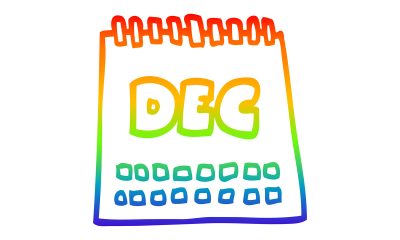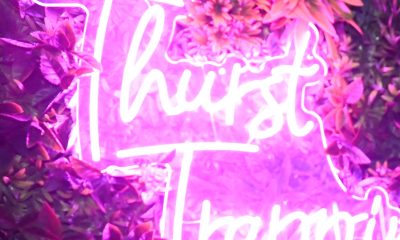Arts & Entertainment
Previewing D.C.’s WorldPride Music Festival
Producer Jake Resnicow on unforgettable event with genres from disco to country
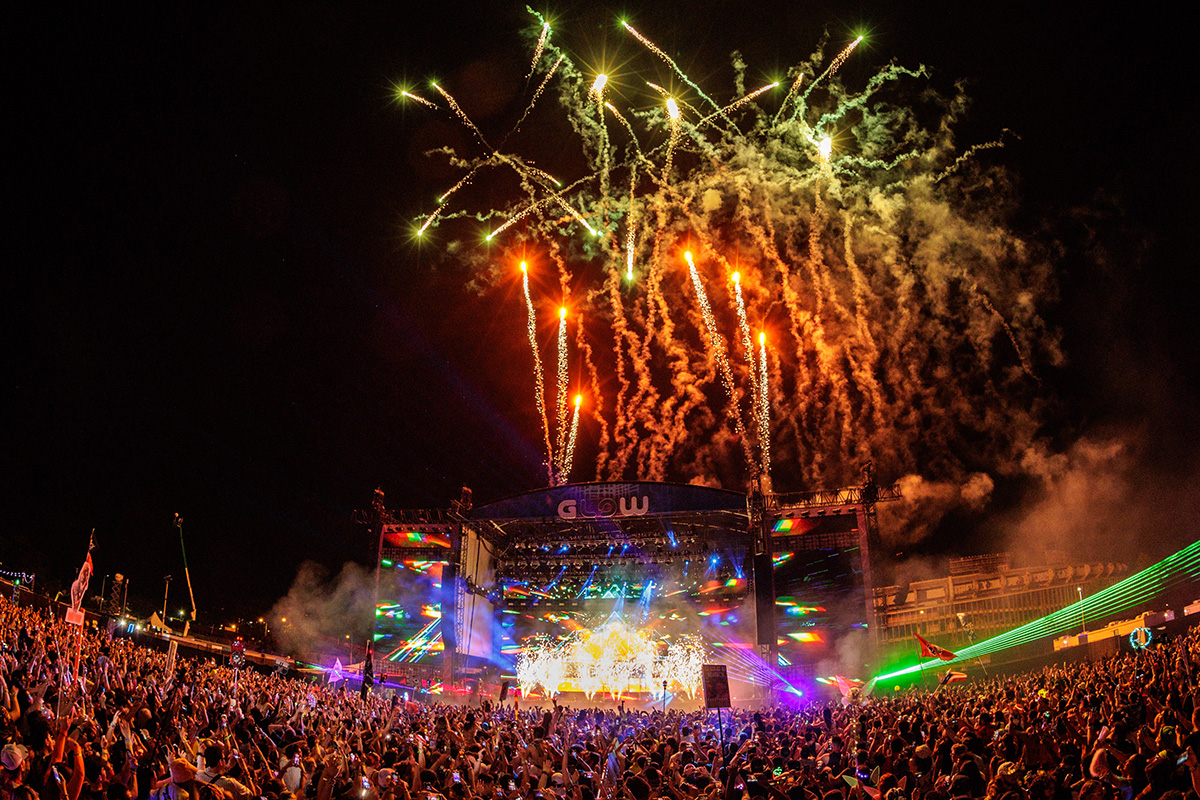
As WorldPride draws closer, Washington, D.C. is getting ready to celebrate on multiple levels. One major event is the Dreamland WorldPride Music Festival, to be held at RFK Stadium (2400 East Capitol St., N.E.) from June 6-7, 2025. This music festival will serve as the centerpiece of the city’s WorldPride celebration, coinciding with the 50th anniversary of D.C. Pride.
Local electronic dance music event promoter Club Glow is putting on the show, bringing in celebrated producer Jake Resnicow, to create a giant festival. Under the direction of Resnicow and Club Glow, the festival will feature a diverse, yet-to-be-named lineup featuring pop superstars, live performers, DJs, and plenty of local talent. The festival aims to showcase the vibrant spectrum of LGBTQ culture, with musical genres ranging from disco to country, bringing together performers from a range of backgrounds who resonate with Capital Pride’s values and with the attendees.
The Washington Blade conducted an exclusive interview with Jake Resnicow about the festival. The interview has been slightly condensed for clarity.
BLADE: What is your background and role in the nightlife scene?
RESNICOW: I’ve always been passionate about creating spaces where people can express themselves freely. My journey into live events began in 2010 with a Pride event on Governors Island. It was a transformative experience that showed me the power of live events to bring joy and build community. Since then, I’ve had the privilege of producing events like WorldPride at the Javits Center, where we raised over $500,000 for LGBTQ+ charities, as well as the first-ever Pride in Central Park. These events have been about more than just entertainment; they aim to support and uplift the LGBTQ+ community.
BLADE: How did you get involved in the WorldPride Festival with Capital Pride?
RESNICOW: After producing several Pride festivals and witnessing their impact, the opportunity to bring this energy to the largest stage feels like a culmination of a long-held vision. I’m truly honored to collaborate with Pete Kalamoutsos, Heather Church, and Matt Cronin — the driving force behind Project GLOW. Pete has been a leader in the dance music scene for over 25 years. He, Heather, and Matt have not only shaped the East Coast’s electronic music landscape but have also shown unwavering support for the LGBTQ+ community. Their commitment to elevating dance culture, especially through Project GLOW, is remarkable. Beyond the music, the team has incorporated community-focused initiatives, such as highlighting Washington, D.C.’s LGBTQIA+ community through dedicated stages and collaborating with local charities like Sasha Bruce Youthwork. Working with Pete, Heather, and Matt is like joining a dream team — they have an incredible vision and are passionate about making a difference. Together, we aim to create a historic WorldPride 2025 Music Festival that resonates with attendees and leaves a lasting legacy.
BLADE: What does this event mean to the LGBTQ nightlife community?
RESNICOW: WorldPride 2025 is more than just a music festival; it’s a space for celebration, reflection, and visibility. For the LGBTQ nightlife community, it’s an opportunity to come together, celebrate our identities, and amplify voices that have been historically marginalized. In a world where less than 1% of charting artists identify as LGBTQIA+, this festival is a platform to change that narrative. I’m particularly proud to serve on the board of Femme House, where we work to address this underrepresentation by providing resources and opportunities for queer musicians to thrive. This festival symbolizes a safe, inclusive environment where everyone feels seen, heard, and celebrated.
BLADE: What will the festival entail?
RESNICOW: The festival will offer a multi-day experience filled with music, art, and community engagement. Attendees can expect a blend of live performances, immersive activations, art installations, and wellness zones. To me, queer entertainment has evolved beyond nightlife; it’s now a cultural movement that intertwines art, music, fashion, and activism. This evolution has shaped how I approach my events, pushing me to create spaces that are not just safe and inclusive but also challenge and redefine what live entertainment can be. WorldPride 2025 is about creating something larger than a single event; it’s about fostering a movement that celebrates the full spectrum of the LGBTQ+ community. We aim to offer spaces for connection, self-expression, and reflection, incorporating elements that give back to the community and support causes that matter most to us.
BLADE: What are some elements and activations that are part of the festival?
RESNICOW: Beyond the music, there will be a variety of interactive experiences and spaces that celebrate LGBTQ+ culture. This includes art installations, wellness zones, educational areas, and spaces for community organizations to engage with festival-goers. Our goal is to create a holistic experience that goes beyond the traditional festival setup, offering attendees a place to connect, learn, and celebrate in diverse ways.
BLADE: How do WorldPride and the festival connect to the D.C. community?
RESNICOW: Washington, D.C. has a rich history of LGBTQ+ activism and culture, and this festival holds personal significance for me. Having attended Georgetown University, I feel a deep connection to this community and its legacy. WorldPride 2025 is my way of giving back, aiming to create a festival that resonates on a deeply personal level for all of us. I want to create a musical experience that the community will remember, one that celebrates our progress and inspires us for years to come. This event is designed to leave a lasting impression, not just as a festival but as a moment of unity and pride.
A core aspect of WorldPride 2025 is its commitment to giving back. The festival will support the nonprofit Capital Pride Alliance, which serves the needs of the LGBTQ+ community year-round. We’re building on the legacy of our previous events, where we raised substantial funds for LGBTQ+ causes. This isn’t just about a single weekend of celebration; it’s about creating lasting change. Additionally, based on the overwhelming presale response, we’re on track to potentially set a new world record for the largest Pride festival ever. This reflects not only the excitement for the event but also the strength and unity of our community. We’re striving to make the festival a historic moment that has a meaningful, positive impact on both the local D.C. community and the LGBTQ+ community at large.
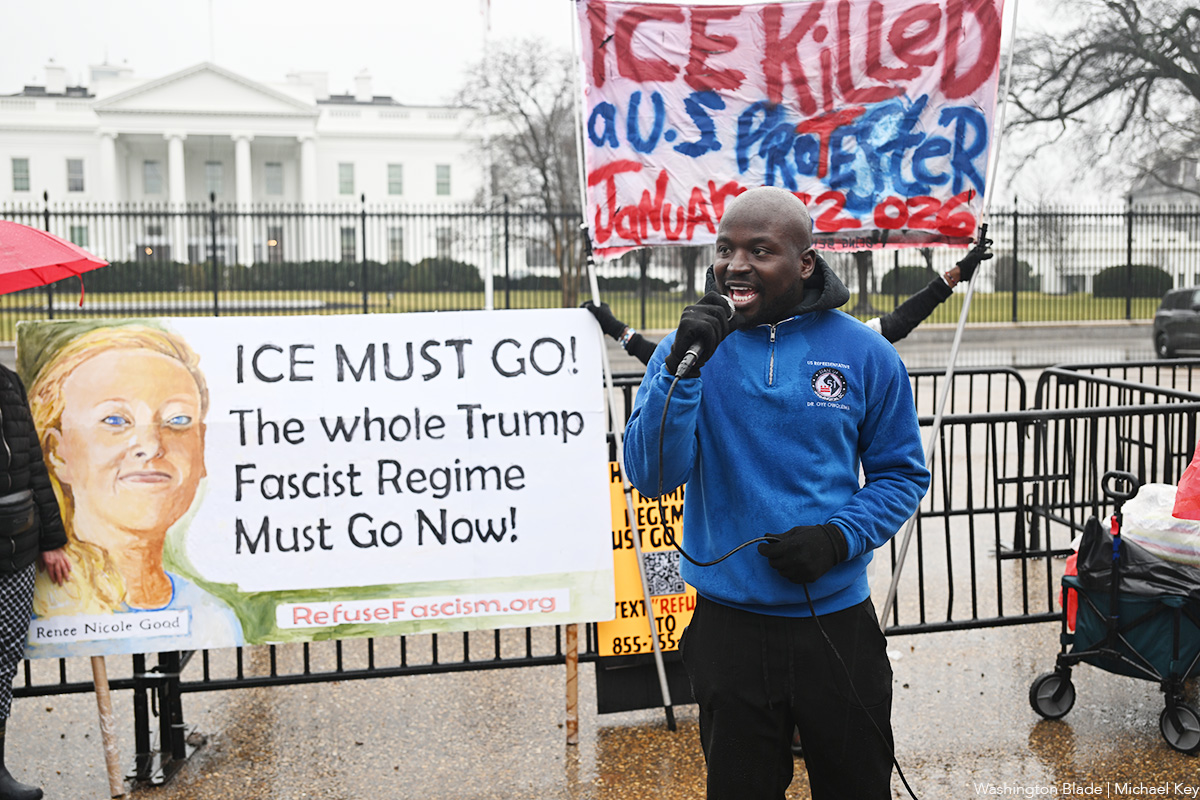
A protest was held outside of the White House on Saturday following the killing of Renee Nicole Good by a U.S. Immigration and Customs Enforcement agent in Minneapolis. Across the Potomac, picketers held signs calling for “Justice for Renee” in Tysons, Va.
“ICE Out For Good” demonstrations were held in cities and towns across the country, according to multiple reports. A march was held yesterday in Washington, D.C., as the Blade reported. Further demonstrations are planned for tomorrow.
(Washington Blade photos by Michael Key)
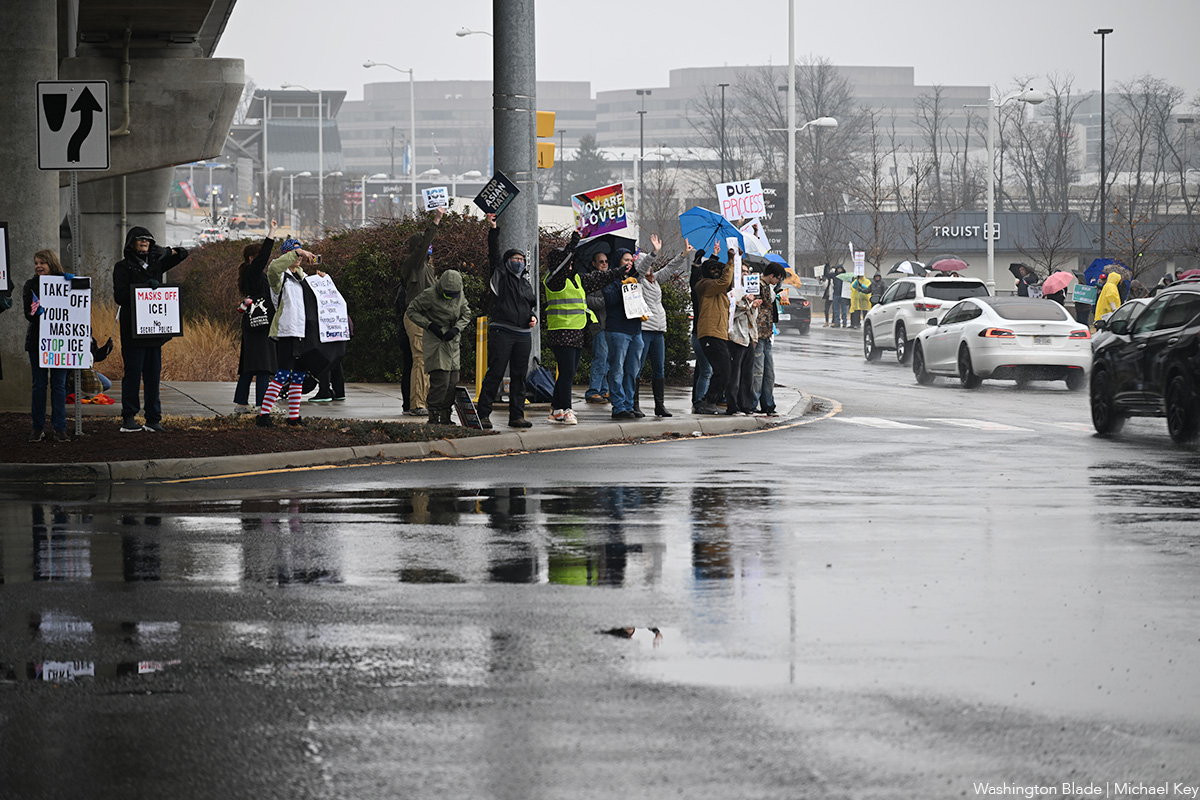
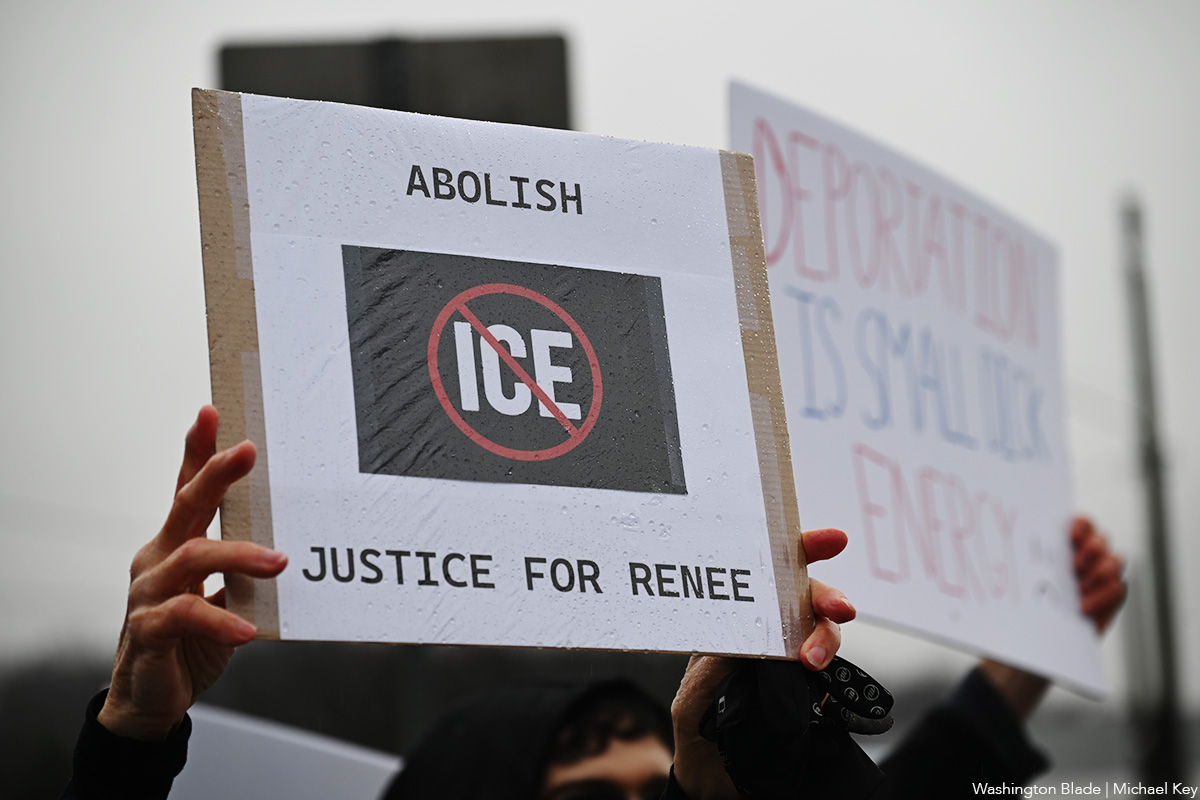
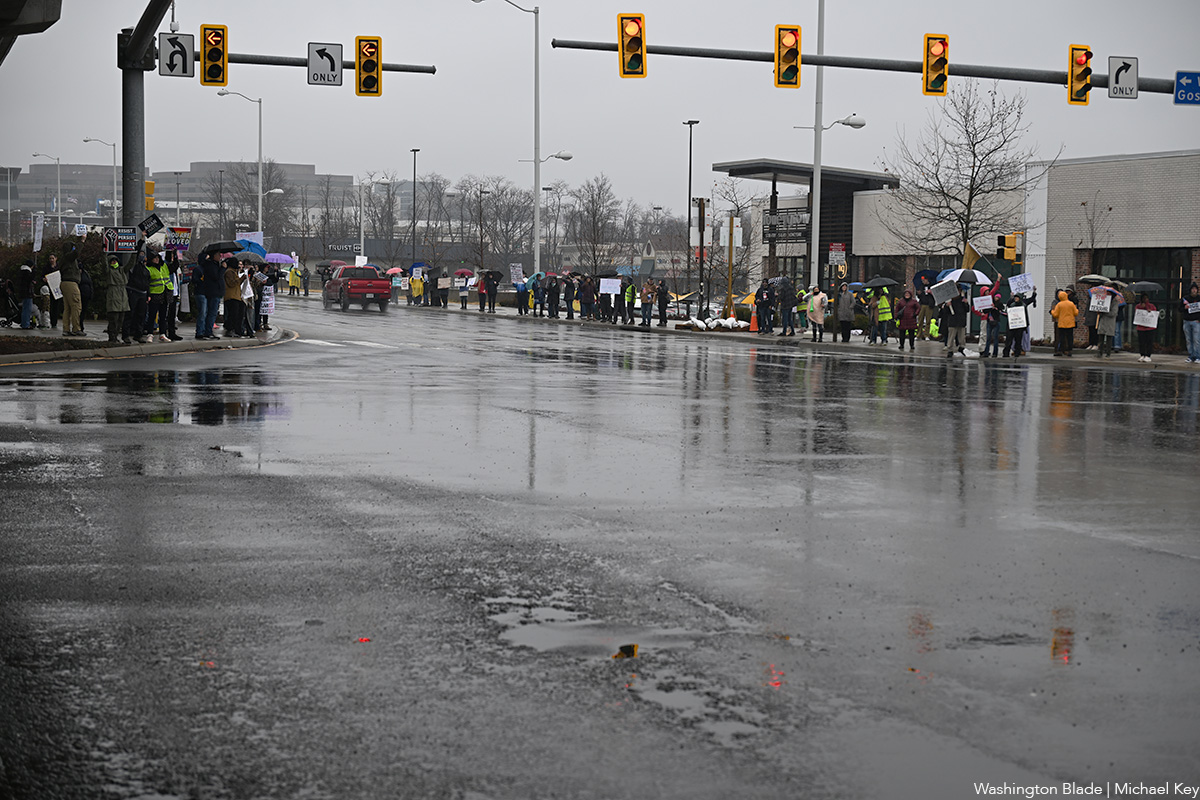
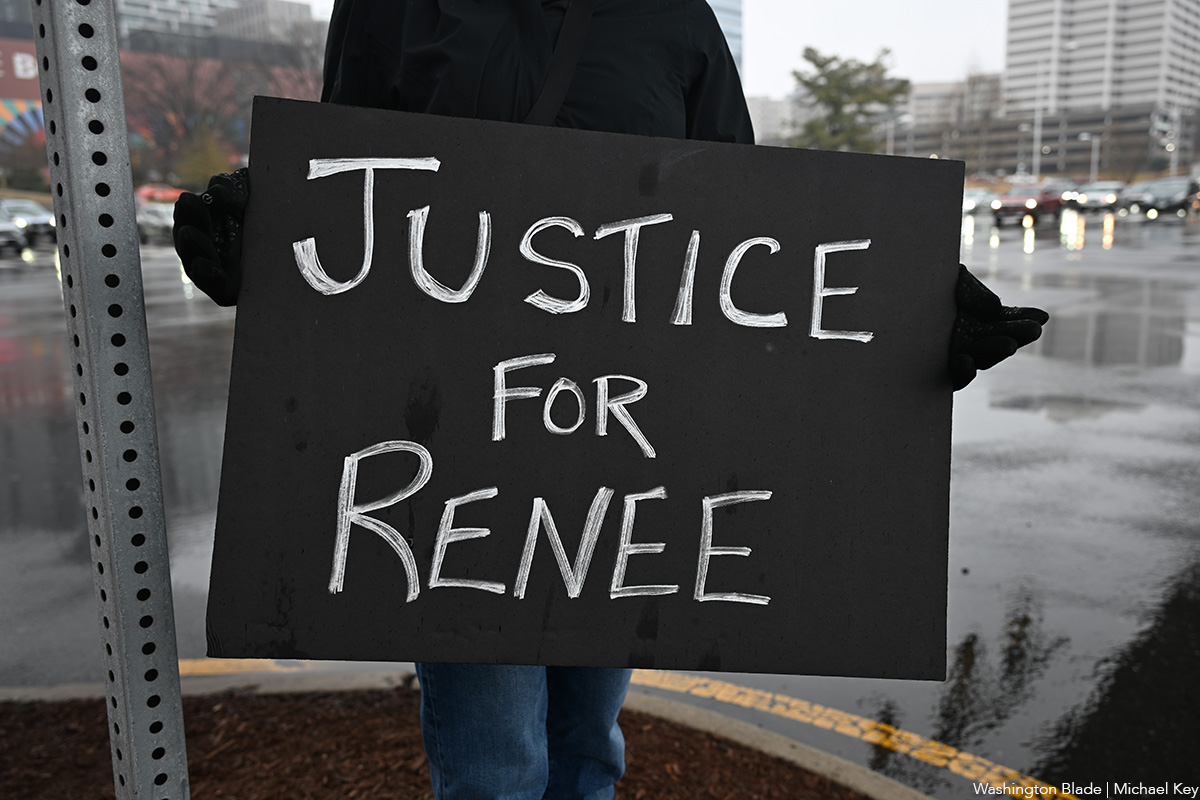
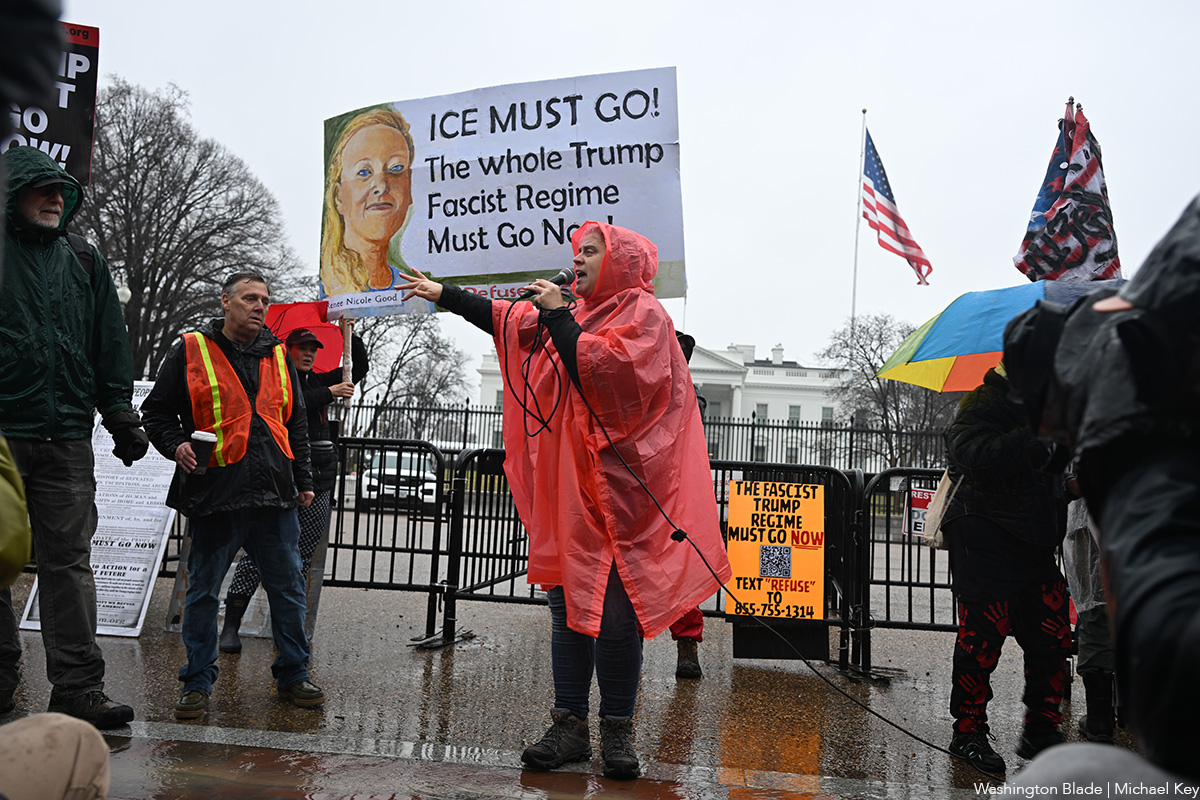
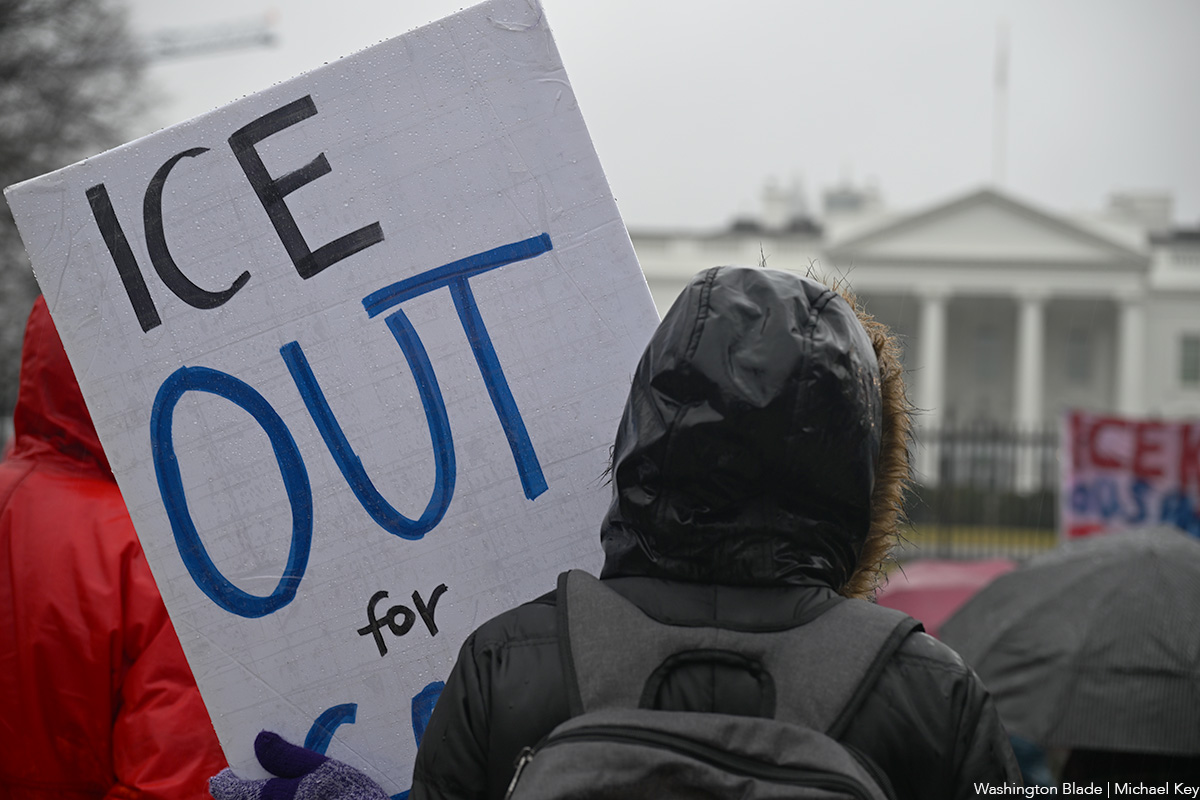
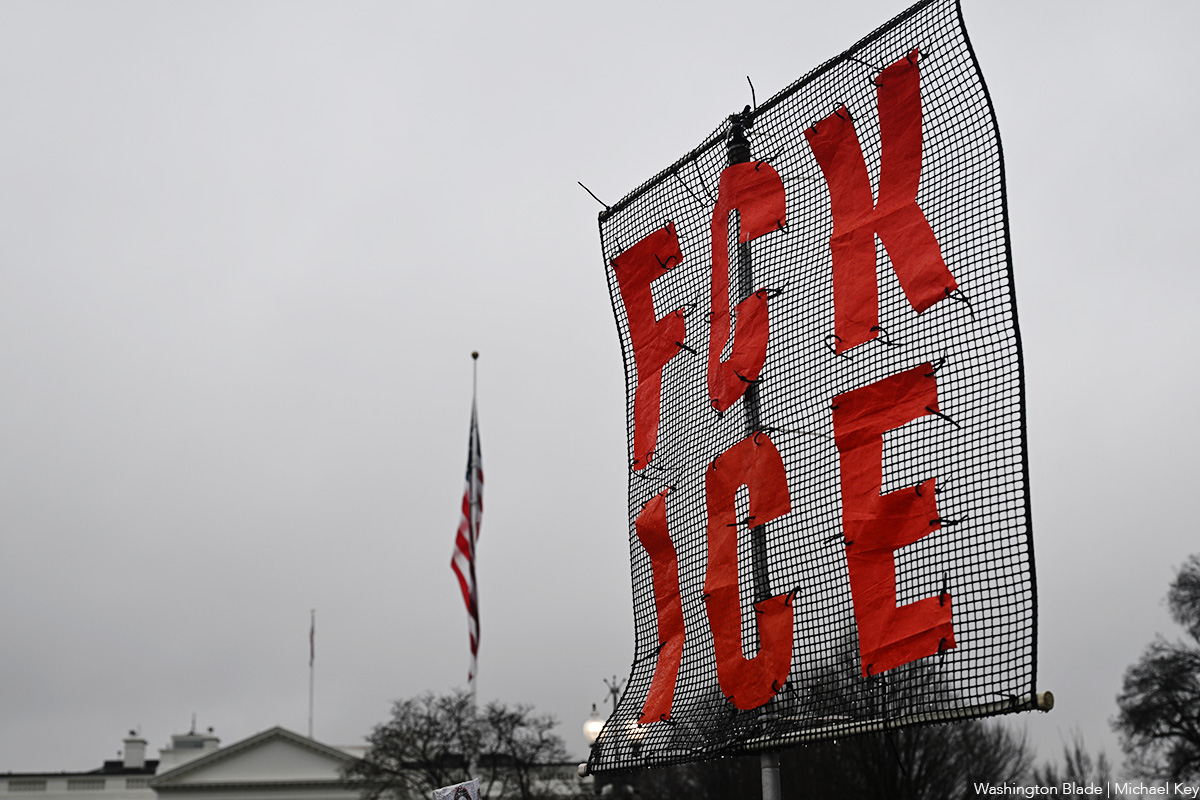
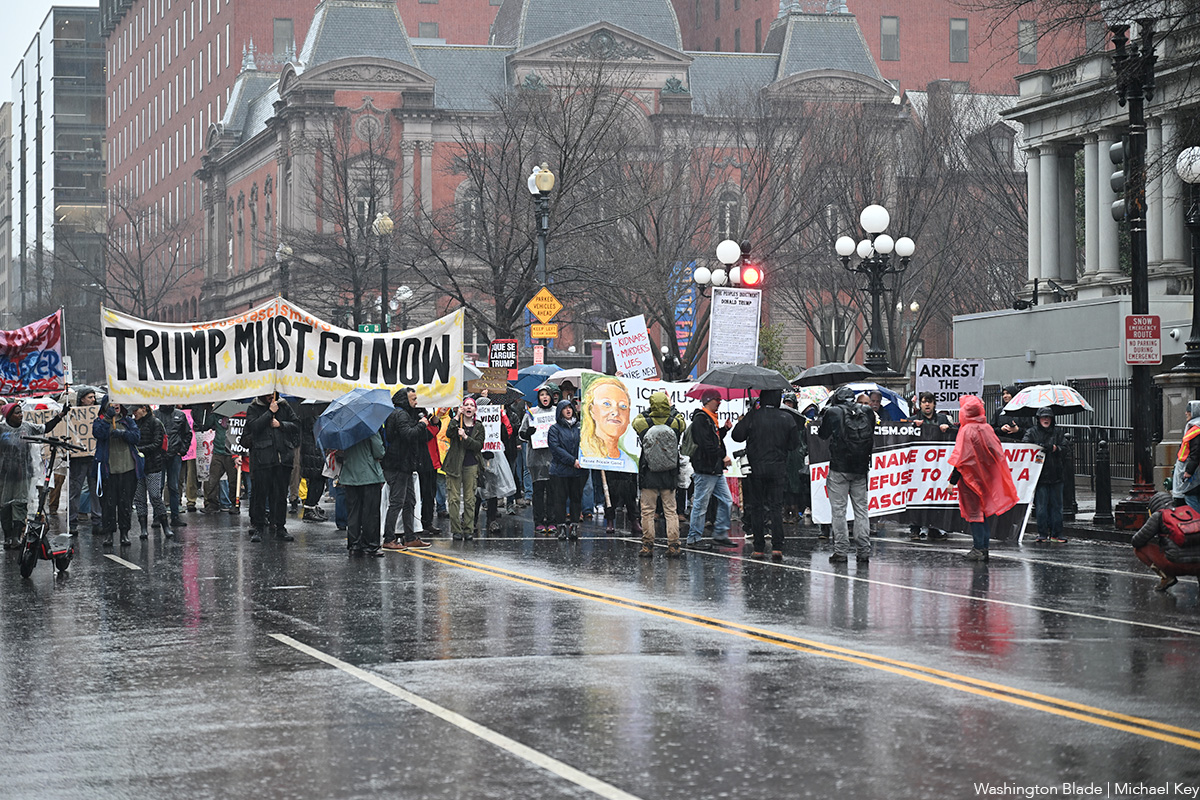

Books
Feminist fiction fans will love ‘Bog Queen’
A wonderful tale of druids, warriors, scheming kings, and a scientist
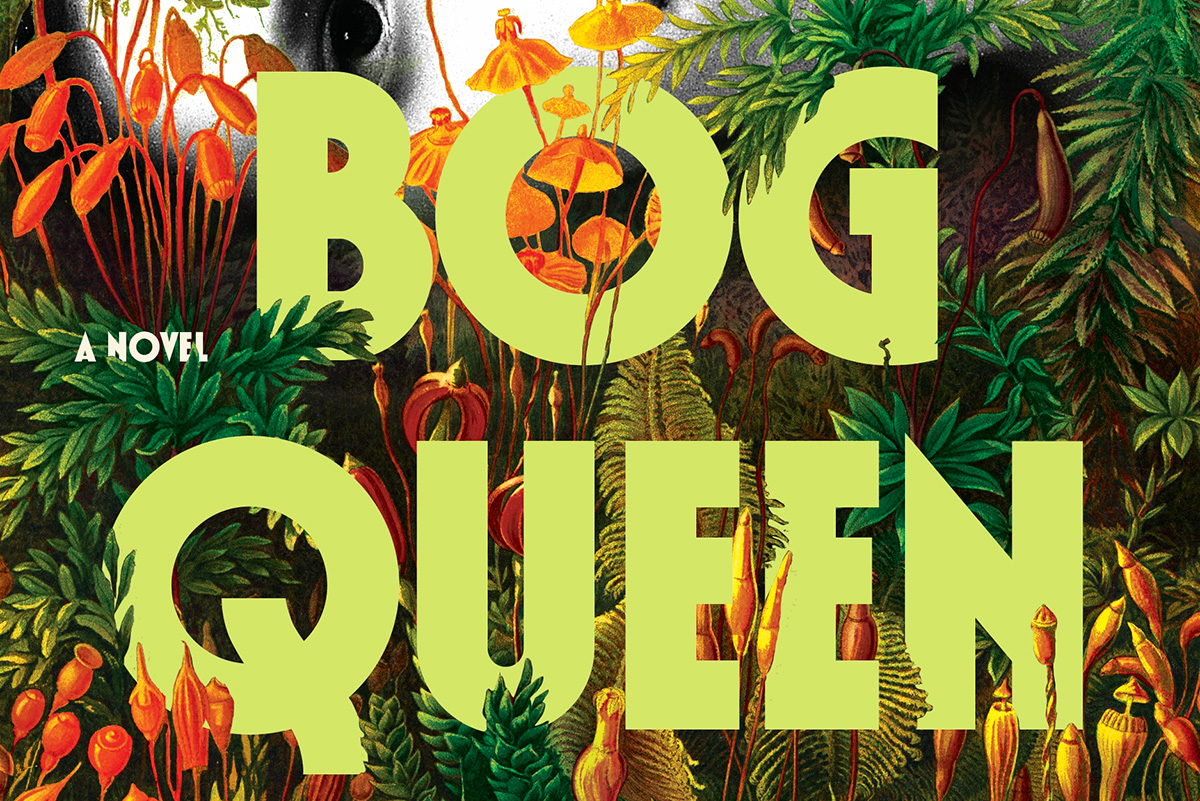
‘Bog Queen’
By Anna North
c.2025, Bloomsbury
$28.99/288 pages
Consider: lost and found.
The first one is miserable – whatever you need or want is gone, maybe for good. The second one can be joyful, a celebration of great relief and a reminder to look in the same spot next time you need that which you first lost. Loss hurts. But as in the new novel, “Bog Queen” by Anna North, discovery isn’t always without pain.

He’d always stuck to the story.
In 1961, or so he claimed, Isabel Navarro argued with her husband, as they had many times. At one point, she stalked out. Done. Gone, but there was always doubt – and now it seemed he’d been lying for decades: when peat cutters discovered the body of a young woman near his home in northwest England, Navarro finally admitted that he’d killed Isabel and dumped her corpse into a bog.
Officials prepared to charge him.
But again, that doubt. The body, as forensic anthropologist Agnes Lundstrom discovered rather quickly, was not that of Isabel. This bog woman had nearly healed wounds and her head showed old skull fractures. Her skin glowed yellow from decaying moss that her body had steeped in. No, the corpse in the bog was not from a half-century ago.
She was roughly 2,000 years old.
But who was the woman from the bog? Knowing more about her would’ve been a nice distraction for Agnes; she’d left America to move to England, left her father and a man she might have loved once, with the hope that her life could be different. She disliked solitude but she felt awkward around people, including the environmental activists, politicians, and others surrounding the discovery of the Iron Age corpse.
Was the woman beloved? Agnes could tell that she’d obviously been well cared-for, and relatively healthy despite the injuries she’d sustained. If there were any artifacts left in the bog, Agnes would have the answers she wanted. If only Isabel’s family, the activists, and authorities could come together and grant her more time.
Fortunately, that’s what you get inside “Bog Queen”: time, spanning from the Iron Age and the story of a young, inexperienced druid who’s hoping to forge ties with a southern kingdom; to 2018, the year in which the modern portion of this book is set.
Yes, you get both.
Yes, you’ll devour them.
Taking parts of a true story, author Anna North spins a wonderful tale of druids, vengeful warriors, scheming kings, and a scientist who’s as much of a genius as she is a nerd. The tale of the two women swings back and forth between chapters and eras, mixed with female strength and twenty-first century concerns. Even better, these perfectly mixed parts are occasionally joined by a third entity that adds a delicious note of darkness, as if whatever happens can be erased in a moment.
Nah, don’t even think about resisting.
If you’re a fan of feminist fiction, science, or novels featuring kings, druids, and Celtic history, don’t wait. “Bog Queen” is your book. Look. You’ll be glad you found it.
Movies
A Shakespearean tragedy comes to life in exquisite ‘Hamnet’
Chloe Zhao’s devastating movie a touchstone for the ages
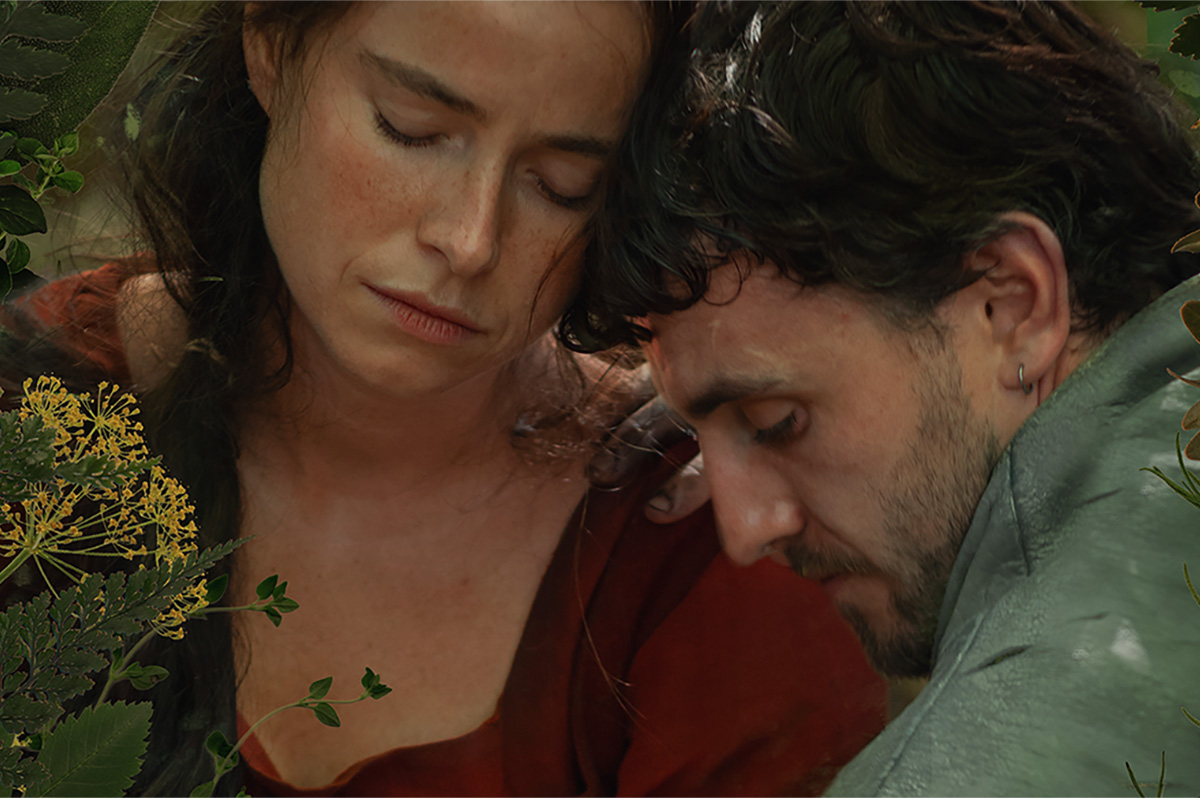
For every person who adores Shakespeare, there are probably a dozen more who wonder why.
We get it; his plays and poems, composed in a past when the predominant worldview was built around beliefs and ideologies that now feel as antiquated as the blend of poetry and prose in which he wrote them, can easily feel tied to social mores that are in direct opposition to our own, often reflecting the classist, sexist, and racist patriarchal dogma that continues to plague our world today. Why, then, should we still be so enthralled with him?
The answer to that question might be more eloquently expressed by Chloe Zhao’s “Hamnet” – now in wide release and already a winner in this year’s barely begun awards season – than through any explanation we could offer.
Adapted from the novel by Maggie O’Farrell (who co-wrote the screenplay with Zhao), it focuses its narrative on the relationship between Will Shakespeare (Paul Mescal) and his wife Agnes Hathaway (Jessie Buckley), who meet when the future playwright – working to pay off a debt for his abusive father – is still just a tutor helping the children of well-to-do families learn Latin. Enamored from afar at first sight, he woos his way into her life, and, convincing both of their families to approve the match (after she becomes pregnant with their first child), becomes her husband. More children follow – including Hamnet (Jacobi Jupe), a “surprise” twin boy to their second daughter – but, recognizing Will’s passion for writing and his frustration at being unable to follow it, Agnes encourages him to travel to London in order to immerse himself in his ambitions.
As the years go by, Agnes – aided by her mother-in-law (Emily Watson) and guided by the nature-centric pagan wisdom of her own deceased mother – raises the children while her husband, miles away, builds a successful career as the city’s most popular playwright. But when an outbreak of bubonic plague results in the death of 11-year-old Hamnet in Will’s absence, an emotional wedge is driven between them – especially when Agnes receives word that her husband’s latest play, titled “Hamlet,” an interchangeable equivalent to the name of their dead son, is about to debut on the London stage.
There is nothing, save the bare details of circumstance around the Shakespeare family, that can be called factual about the narrative told in “Hamnet.” Records of Shakespeare’s private life are sparse and short on context, largely limited to civic notations of fact – birth, marriage, and death announcements, legal documents, and other general records – that leave plenty of space in which to speculate about the personal nuance such mundane details might imply. What is known is that the Shakespeares lost their son, probably to plague, and that “Hamlet” – a play dominated by expressions of grief and existential musings about life and death – was written over the course of the next five years. Shakespearean scholars have filled in the blanks, and it’s hard to argue with their assumptions about the influence young Hamnet’s tragic death likely had over the creation of his father’s masterwork. What human being would not be haunted by such an event, and how could any artist could avoid channeling its impact into their work, not just for a time but for forever after?
In their screenplay, O’Farrell and Zhao imagine an Agnes Shakespeare (most records refer to her as “Anne” but her father’s will uses the name “Agnes”) who stands apart from the conventions of her town, born of a “wild woman” in the woods and raised in ancient traditions of mysticism and nature magic before being adopted into her well-off family, who presents a worthy match and an intellectual equal for the brilliantly passionate creator responsible for some of Western Civilization’s most enduring tales. They imagine a courtship that would have defied the customs of the time and a relationship that feels almost modern, grounded in a love and mutual respect that’s a far cry from most popular notions of what a 16th-century marriage might look like. More than that, they imagine that the devastating loss of a child – even in a time when the mortality rate for children was high – might create a rift between two parents who can only process their grief alone. And despite the fact that almost none of what O’Farrell and Zhao present to us can be seen, at best, as anything other than informed speculation, it all feels devastatingly true.
That’s the quality that “Hamnet” shares with the ever-popular Will Shakespeare; though it takes us into a past that feels as alien to us as if it took place upon a different planet, it evokes a connection to the simple experience of being human, which cuts through the differences in context. Just as the kings, heroes, and fools of Shakespeare’s plays express and embody the same emotional experiences that shape our own mundane modern lives, the film’s portrayal of these two real-life people torn apart by personal tragedy speaks directly to our own shared sense of loss – and it does so with an eloquence that, like Shakespeare’s, emerges from the story to make it feel as palpable as if their grief was our own.
Yes, the writing and direction – each bringing a powerfully feminine “voice” to the story – are key to the emotional impact of “Hamnet,” but it’s the performances of its stars that carry it to us. Mescal, once more proving himself a master at embodying the kind of vulnerable masculine tenderness that’s capable of melting our hearts, gives us an accessible Shakespeare, driven perhaps by a spark of genius yet deeply grounded in the tangible humanity that underscores the “everyman” sensibility that informs the man’s plays. But it’s Buckley’s movie, by a wide margin, and her bold, fierce, and deeply affecting performance gives voice to a powerful grief, a cry against the injustice and cruelty of what we fumblingly call “fate” that resonates deep within us and carries our own grief, over losses we’ve had and losses we know are yet to come, along with her on the journey to catharsis.
That’s the word – “catharsis” – that defines why Shakespeare (and by extension, “Hamnet”) still holds such power over the imagination of our human race all these centuries later. The circumstantial details of his stories, wrapped up in ancient ideologies that still haunt our cultural imagination, fall away in the face of the raw expression of humanity to which his characters give voice. When Hamlet asks “to be or not to be?,” he is not an old-world Danish Prince contemplating revenge against a traitor who murdered his father; he is Shakespeare himself, pondering the essential mystery of life and death, and he is us, too.
Likewise, the Agnes Shakespeare of “Hamnet” (masterfully enacted by Buckley) embodies all our own sorrows – past and future, real and imagined – and connects them to the well of human emotion from which we all must drink; it’s more powerful than we expect, and more cleansing than we imagine, and it makes Zhao’s exquisitely devastating movie into a touchstone for the ages.
We can’t presume to speak for Shakespeare, but we are pretty sure he would be pleased.
-

 District of Columbia5 days ago
District of Columbia5 days agoImperial Court of Washington drag group has ‘dissolved’
-

 Colombia4 days ago
Colombia4 days agoGay Venezuelan man who fled to Colombia uncertain about homeland’s future
-

 District of Columbia4 days ago
District of Columbia4 days agoKennedy Center renaming triggers backlash
-

 Arts & Entertainment4 days ago
Arts & Entertainment4 days ago2026 Most Eligible LGBTQ Singles nominations

